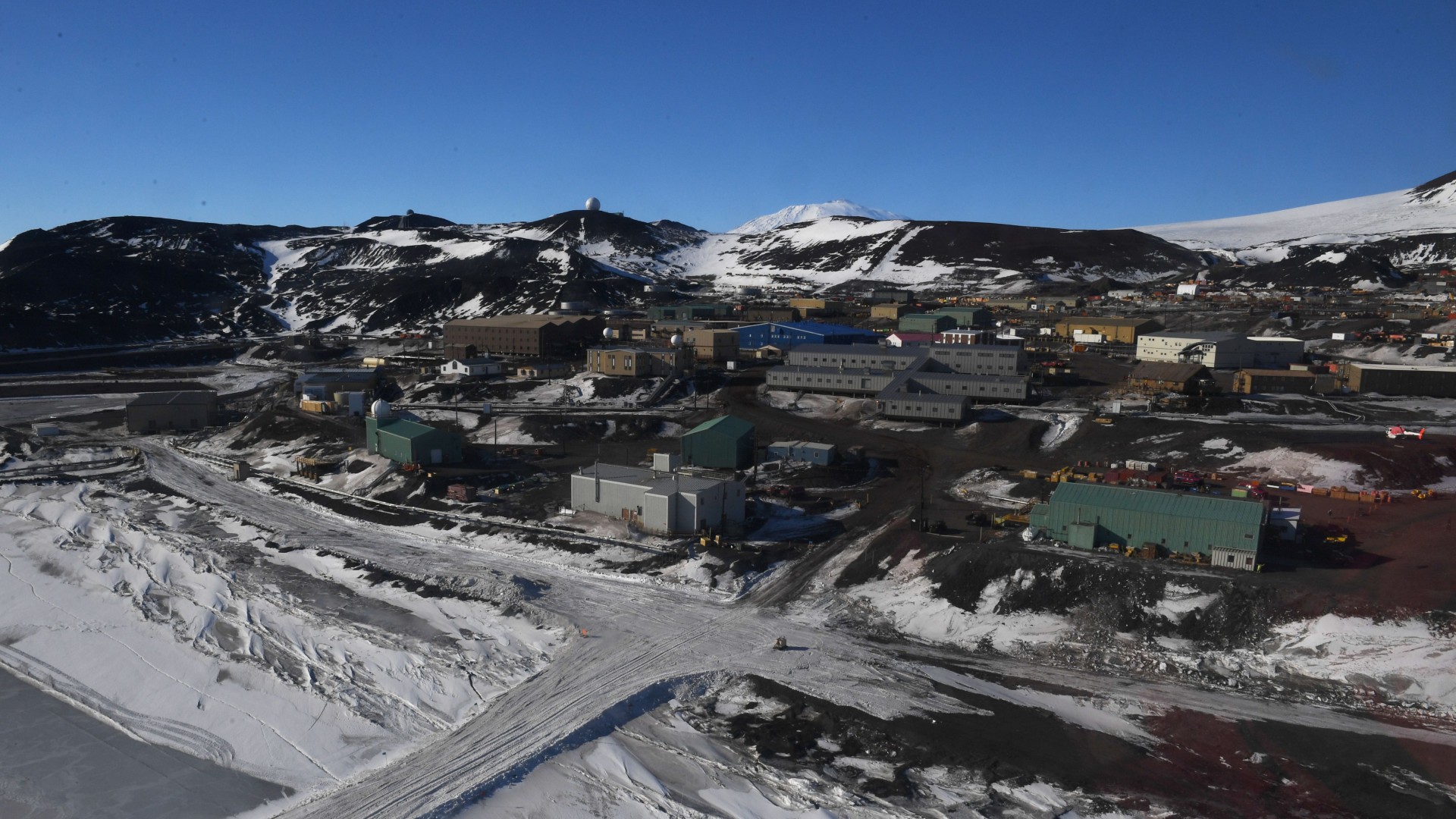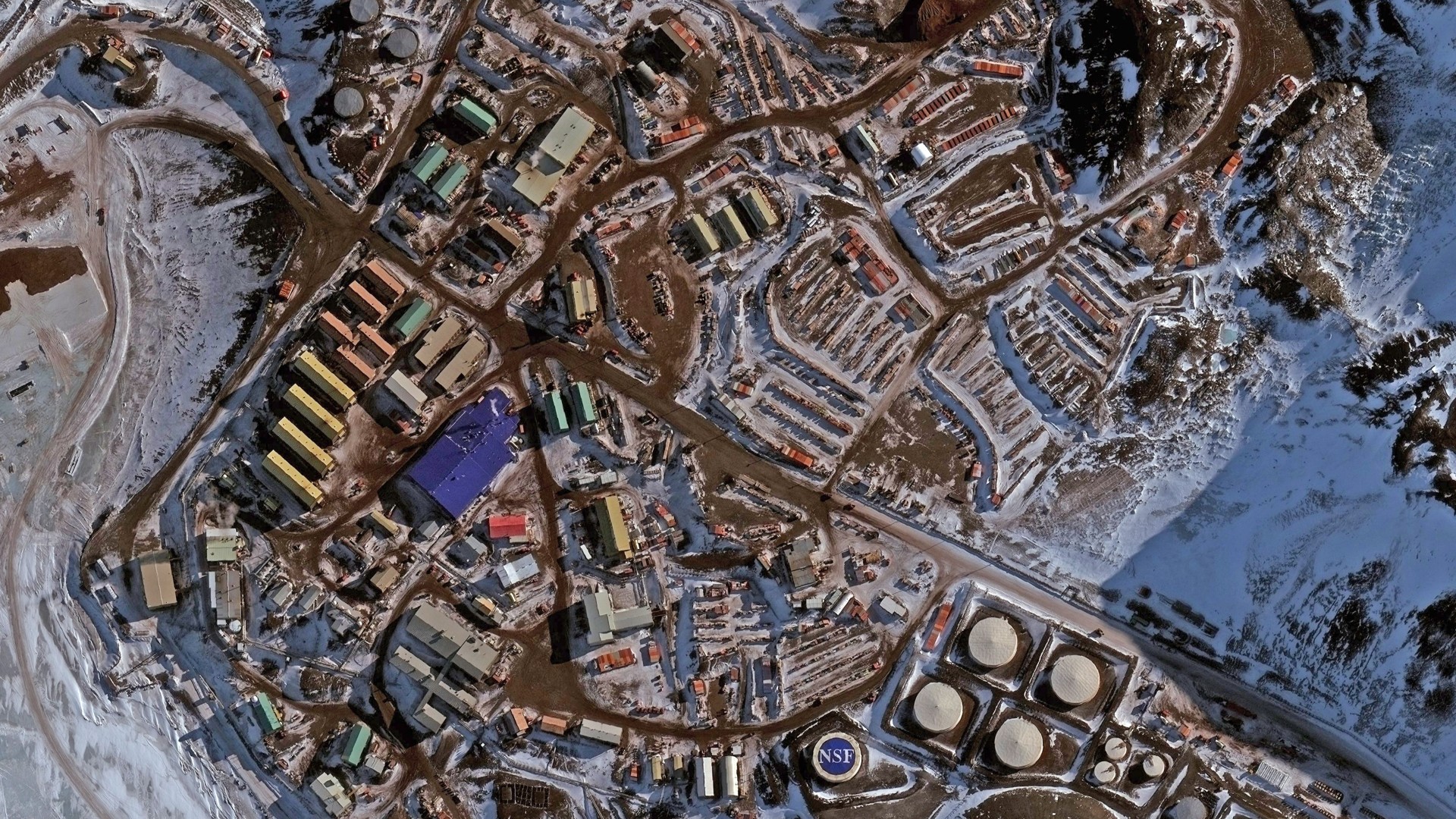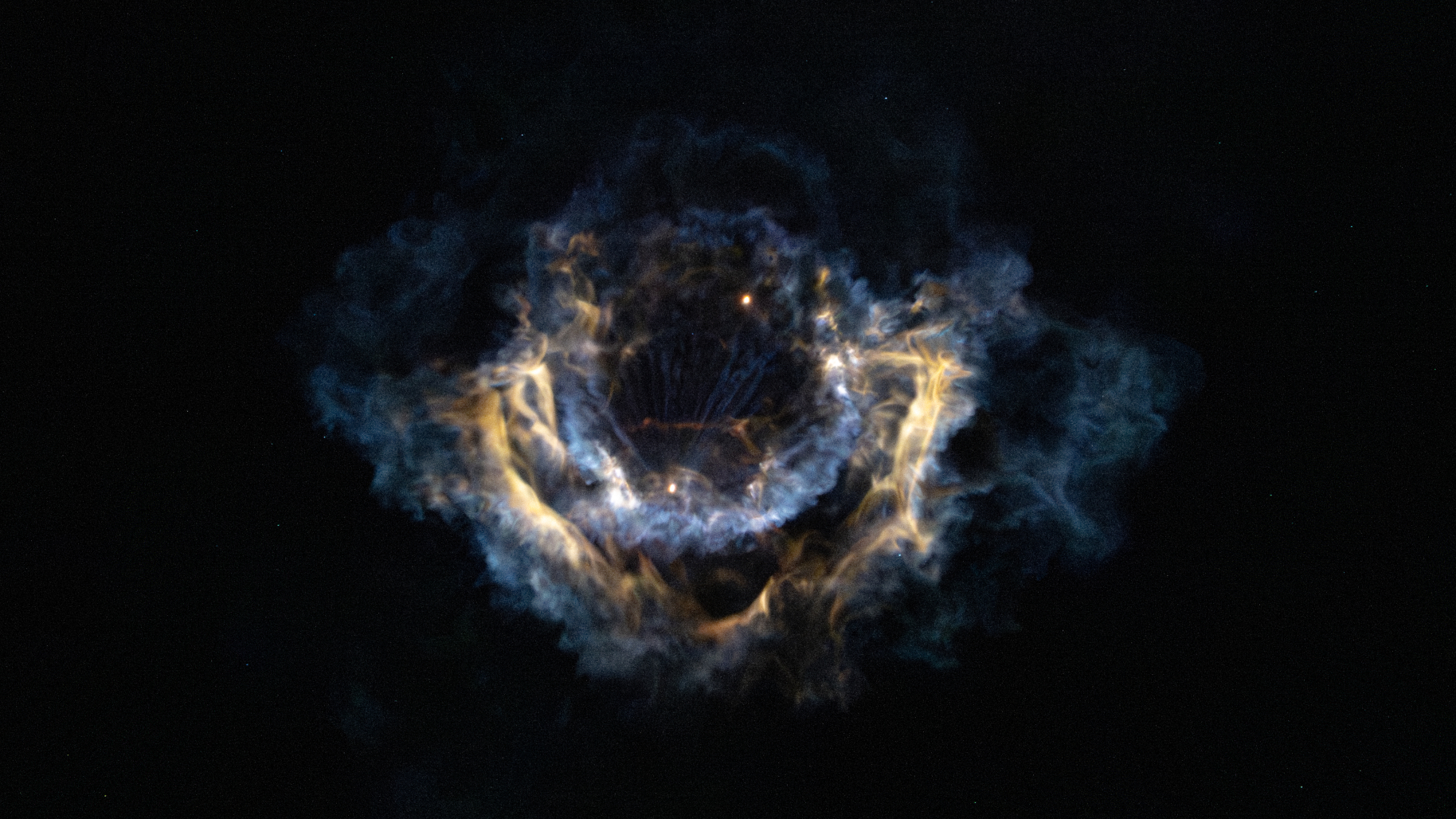Harassment at Antarctic research bases could spell problems for moon, Mars outposts
Antarctica is an isolated, confined environment similar to those that might be on future moon or Mars bases.

Breaking space news, the latest updates on rocket launches, skywatching events and more!
You are now subscribed
Your newsletter sign-up was successful
Want to add more newsletters?

Delivered daily
Daily Newsletter
Breaking space news, the latest updates on rocket launches, skywatching events and more!

Once a month
Watch This Space
Sign up to our monthly entertainment newsletter to keep up with all our coverage of the latest sci-fi and space movies, tv shows, games and books.

Once a week
Night Sky This Week
Discover this week's must-see night sky events, moon phases, and stunning astrophotos. Sign up for our skywatching newsletter and explore the universe with us!

Twice a month
Strange New Words
Space.com's Sci-Fi Reader's Club. Read a sci-fi short story every month and join a virtual community of fellow science fiction fans!
Warning: This story contains details of violence that may be disturbing to some readers. You can find resources and help for survivors at the U.S. Department of Justice website.
More than 40 percent of respondents to a new survey experienced a sexual assault or sexual harassment during recent Antarctic research expeditions, according to the U.S. National Science Foundation (NSF).
Antarctica is a common analog for spaceflight or stay on a future moon base or Mars settlement due to its remote nature. NSF pledged to work with its own participants, as well as to share information with other organizations working in remote environments, for assessment, prevention and follow-up.
"NSF is committed to fostering and maintaining a culture free from sexual violence wherever NSF-funded activities are conducted, including in Antarctica," a spokesperson told Space.com over email about the report, which was released in July. "NSF is dedicated to keeping the USAP [U.S. Antarctic Program] community safe."
In a report in Nature, a scientist and past participant in NSF polar work said the survey is "an important step" towards addressing issues with harassment. "Surveys like this play a critical role in documenting lived experiences that have too often been ignored or minimized," said Asa Rennermalm, a physical geographer and polar scientist at Rutgers University in New Jersey.
Nature's report added that NSF (like NASA) has been threatened with large budget cuts by the White House, and the entire government is also being targeted by the Trump administration for matters relating to diversity, equity and inclusion. These two factors, the Nature report added, make it unclear to what capacity NSF can respond to the findings.
The NSF spokesperson told Space.com, however, that the foundation pledged to use the survey results "as a way to ensure continuous program improvement based on lived experiences," particularly because of the quality of the data collection.
Breaking space news, the latest updates on rocket launches, skywatching events and more!
Antarctica is an example of an isolated, confined environment — just like a spacecraft or a potential future base on the moon or Mars. A term for such locations, Isolated, Confined, and Extreme environments (ICE), simply put, includes zones where humans must work in an operational (and often dangerous) environment far from the usual supports of home.
Submarines, research bases and spacecraft are some examples of ICE and there are decades of studies regarding how to support individuals in these environments, according to a separate 2021 study in Neuroscience & Biobehavioral Reviews.
The teams that will work best in ICE should be properly screened and selected to deal with "leadership, coping and interpersonal skills training … during and after long-duration missions," the authors of the 2021 study said. The study was co-authored by the University of Southern California's Lawrence Palinkas and the University of British Columbia's Peter Suedfeld, who are frequently cited among both ICE researchers and space scientists.
Generally speaking, NASA has spent decades integrating studies of ICE to improve conditions for its astronaut training and living. For example: ISS crews are put through many rounds of ICE environment training before leaving, including working in caves, underwater habitats, and wilderness excursions. Astronauts in space speak with a psychologist at least once every two weeks, according to the Canadian Space Agency. Long-duration astronauts in particular are given rest days to pursue hobbies, call family or friends, and generally to relax.

Antarctic scrutiny
Regarding Antarctica, USAP has been under recent scrutiny by the House Committee on Science, Space, and Technology. The committee started an investigation after a 2022 report by NSF and partners, concerning sexual assault and harassment during NSF activities in Antarctica.
The House committee found "serious deficiencies" in 2024 with how NSF was managing USAP, and made recommendations for remedies. (The committee has also, more generally, investigated sexual assault, sexual harassment, blacklisting and similar activities in scientific programs since 2017.)
The new NSF survey, done alongside several external partners, canvassed 2,760 individuals who deployed with the NSF Office of Polar Programs between 2022 and 2024. Roughly 25% of those canvassed, or 679 people, completed the survey.
Participants, however, were asked to complete different inventories that had their own response rates.
For example, 521 individuals completed a "victimization inventory", in which 40.7% of respondents said they had experienced at least one instance of sexual assault or sexual harassment. Among the victimization respondents, the survey found that more than half of those affected by these incidents (59%) were female. Responses were nearly evenly split (48% and 52%) between those deployed less than a year, and those deployed for between one and four years.
A "bystander inventory" generated 572 responses, in which nearly 70% (68.7%) of respondents said they had witnessed an incident of sexual assault or sexual harassment. Nearly half (44.5%) said the most recent incident they witnessed was part of a series of issues. (Broadly speaking, assault or harassment was classified into four categories by NSF: as "sexual harassment and stalking", "unwanted sexual attention", "sexual coercion, and "sexual assault.")
NSF emphasized to Space.com that the Antarctic survey was not meant to be representative "of the specifics of spaceflights," but the spokesperson noted that sharing the results may allow "other organizations operating in remote environments [to] learn and benefit from our approach."
"It is essential to conduct a needs assessment or data collection to inform and guide strategic efforts, ensuring they are grounded in the strengths of an organization while also assessing risk factors that are specific to your environment and community," the spokesperson added. "While prevention efforts can be adapted, it is critical to understand the dynamics of the participants."
Recommendations of the Antarctic survey, in NSF's words, include:
- Decrease the prevalence of victimization and bystander incidents.
- Increase both formal reporting and informal disclosures by decreasing barriers to reporting and improving trust, and accountability.
- Increase positive norms related to intervening as a bystander.
- Decrease norms that support and encourage behaviors.
- Increase recognition of problem behaviors that can lead to perpetration of behaviors.
- Increase supervisors' engagement in and initiation of SA/SH prevention efforts.
The foundation has already implemented some of the report recommendations, including case tracking of incidents and better bystander intervention training. More details are available in a memorandum about the report.
"We are carefully reviewing the recommendations, and considering our next steps to ensure that we continue to take effective actions within our available resources," the spokesperson added. For example, NSF said the program office is ready to assist those participants who experienced sexual assaults, and has a dedicated web page available for reporting and other needs.

Elizabeth Howell (she/her), Ph.D., was a staff writer in the spaceflight channel between 2022 and 2024 specializing in Canadian space news. She was contributing writer for Space.com for 10 years from 2012 to 2024. Elizabeth's reporting includes multiple exclusives with the White House, leading world coverage about a lost-and-found space tomato on the International Space Station, witnessing five human spaceflight launches on two continents, flying parabolic, working inside a spacesuit, and participating in a simulated Mars mission. Her latest book, "Why Am I Taller?" (ECW Press, 2022) is co-written with astronaut Dave Williams.
You must confirm your public display name before commenting
Please logout and then login again, you will then be prompted to enter your display name.
